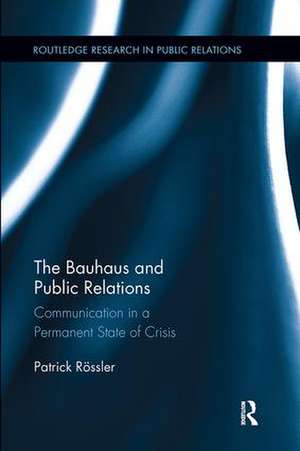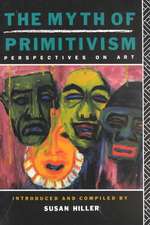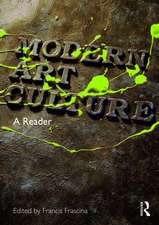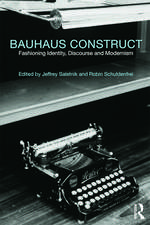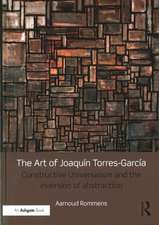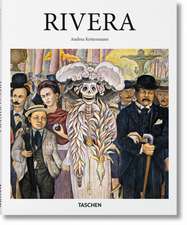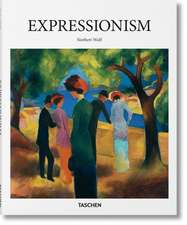The Bauhaus and Public Relations: Communication in a Permanent State of Crisis: Routledge Research in Public Relations
Autor Patrick Rössleren Limba Engleză Paperback – 16 iun 2017
| Toate formatele și edițiile | Preț | Express |
|---|---|---|
| Paperback (1) | 325.34 lei 43-57 zile | |
| Taylor & Francis – 16 iun 2017 | 325.34 lei 43-57 zile | |
| Hardback (1) | 824.53 lei 43-57 zile | |
| Taylor & Francis – 14 ian 2014 | 824.53 lei 43-57 zile |
Preț: 325.34 lei
Preț vechi: 371.71 lei
-12% Nou
Puncte Express: 488
Preț estimativ în valută:
62.25€ • 65.16$ • 51.81£
62.25€ • 65.16$ • 51.81£
Carte tipărită la comandă
Livrare economică 31 martie-14 aprilie
Preluare comenzi: 021 569.72.76
Specificații
ISBN-13: 9781138097834
ISBN-10: 1138097837
Pagini: 288
Ilustrații: 3 Line drawings, black and white; 37 Halftones, black and white; 11 Tables, black and white; 40 Illustrations, black and white
Dimensiuni: 152 x 229 x 19 mm
Greutate: 0.45 kg
Ediția:1
Editura: Taylor & Francis
Colecția Routledge
Seria Routledge Research in Public Relations
Locul publicării:Oxford, United Kingdom
ISBN-10: 1138097837
Pagini: 288
Ilustrații: 3 Line drawings, black and white; 37 Halftones, black and white; 11 Tables, black and white; 40 Illustrations, black and white
Dimensiuni: 152 x 229 x 19 mm
Greutate: 0.45 kg
Ediția:1
Editura: Taylor & Francis
Colecția Routledge
Seria Routledge Research in Public Relations
Locul publicării:Oxford, United Kingdom
Public țintă
Postgraduate and UndergraduateCuprins
Introduction. 1. Corporate Identity: The Bauhaus in Dialogue with the Public Part I: Meeting the Public 2. The Networks: How the Directors Shaped Perceptions 3. The Exhibitions: Promoting the Bauhaus Idea 4. The Events: Staging Bauhaus for the Public Part II: Designing Printed Matter 5. The Propaganda: Graphic Design and the Printing/Advertising Workshops 6. The Money: New Typography in Everybodys’ Pockets (by Nele Heise) 7. The Prints: Books and Magazines in New Typography Part III: The Voice of the Others 8. The Media: Monitoring Press Coverage 9. The Commentaries: Instrumentalizing the Press Response 10. The Periodicals: Successful Agenda-Setting. Conclusion.
Descriere
This innovative study considers one of the most important art and design movements of the 20th century, the Bauhaus, in conjunction with current research in public relations and organizational communication, elaborating on the mechanisms of internal and external communication available to influence the stakeholders in politics, society, industry, and the art world. In a movement where a substantial share of productivity ran in measures to highlight the public value of the institution funded by the taxpayer, the directors, and other persons in charge, the Bauhaus developed comprehensive strategies to communicate their messages to a variety of target groups such as politicians and economic leaders, intellectuals and other artists, current and prospective students, and the general public. To achieve this goal, the Bauhaus anticipated many instruments of modern public relations and corporate communications, including press releases, staging of events, media publications, community building, lobbying, and the creation of nationwide public presence. Rössler argues that as an organization, the Bauhaus cultivated corporate behavior and, most prominently, a corporate design which unfolded revolutionary power. The basic achievements of new typography (a label coined at the Bauhaus) determine visual communication to this day, while the Bauhaus moved from an institutional organization to a community. Beginning with an overview of the Bauhaus’ corporate identity and a close examination of the respective directors’ roles for internal and external communication, this book visits exhibitions, events, and the media attention they evoked in newspapers and contemporary periodicals, along with media products designed at the Bauhaus such as magazines, books, and bank notes.
